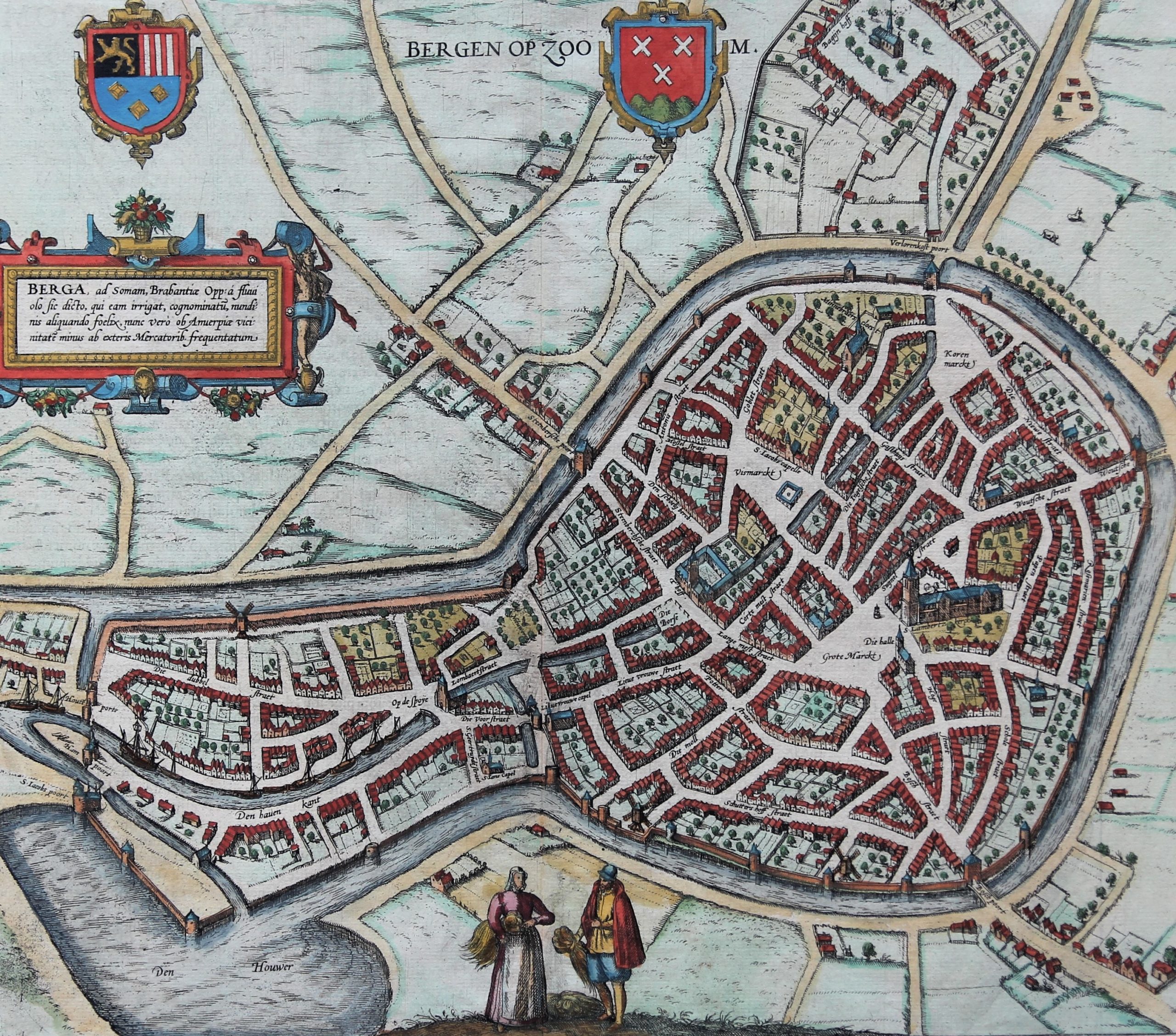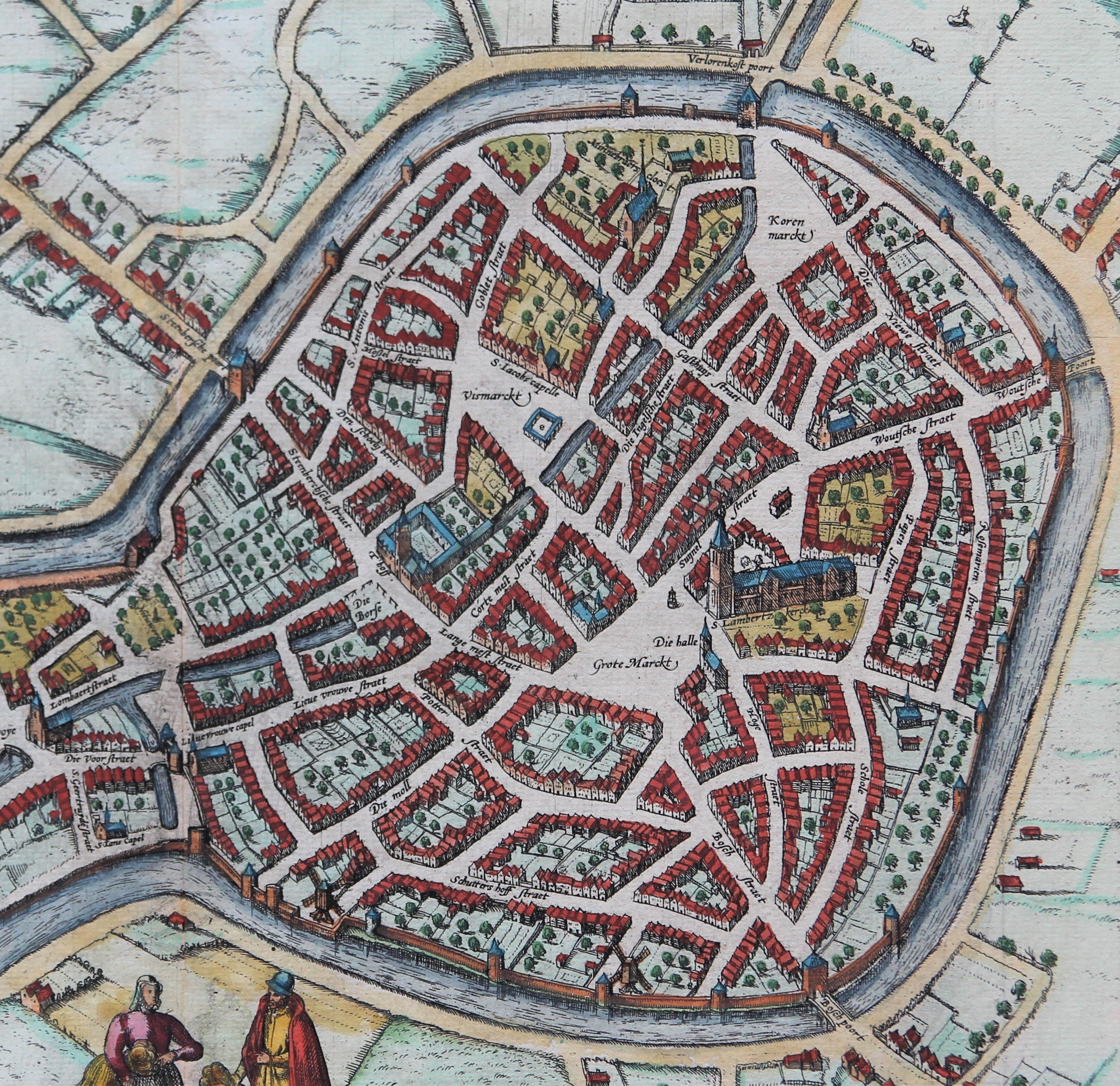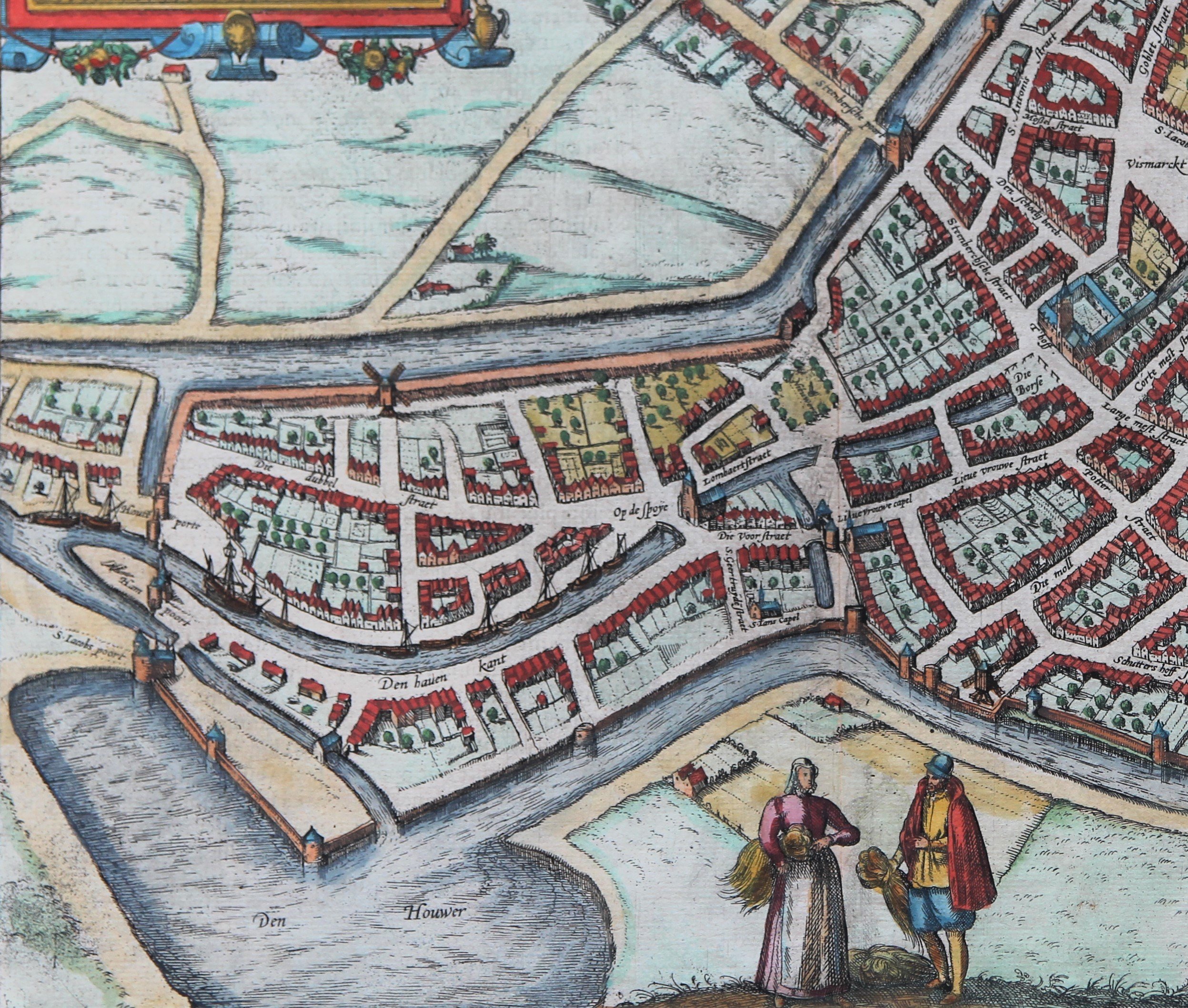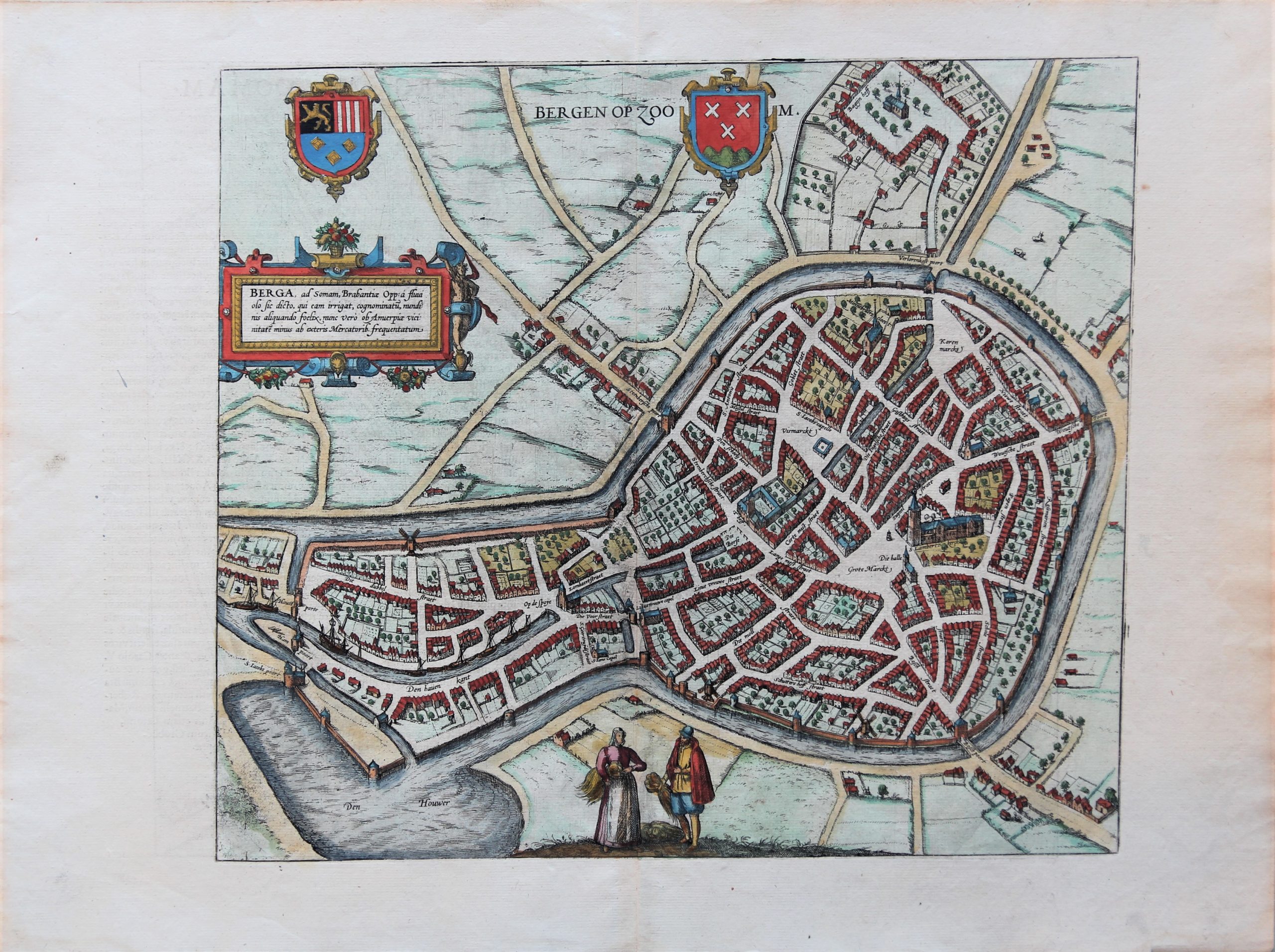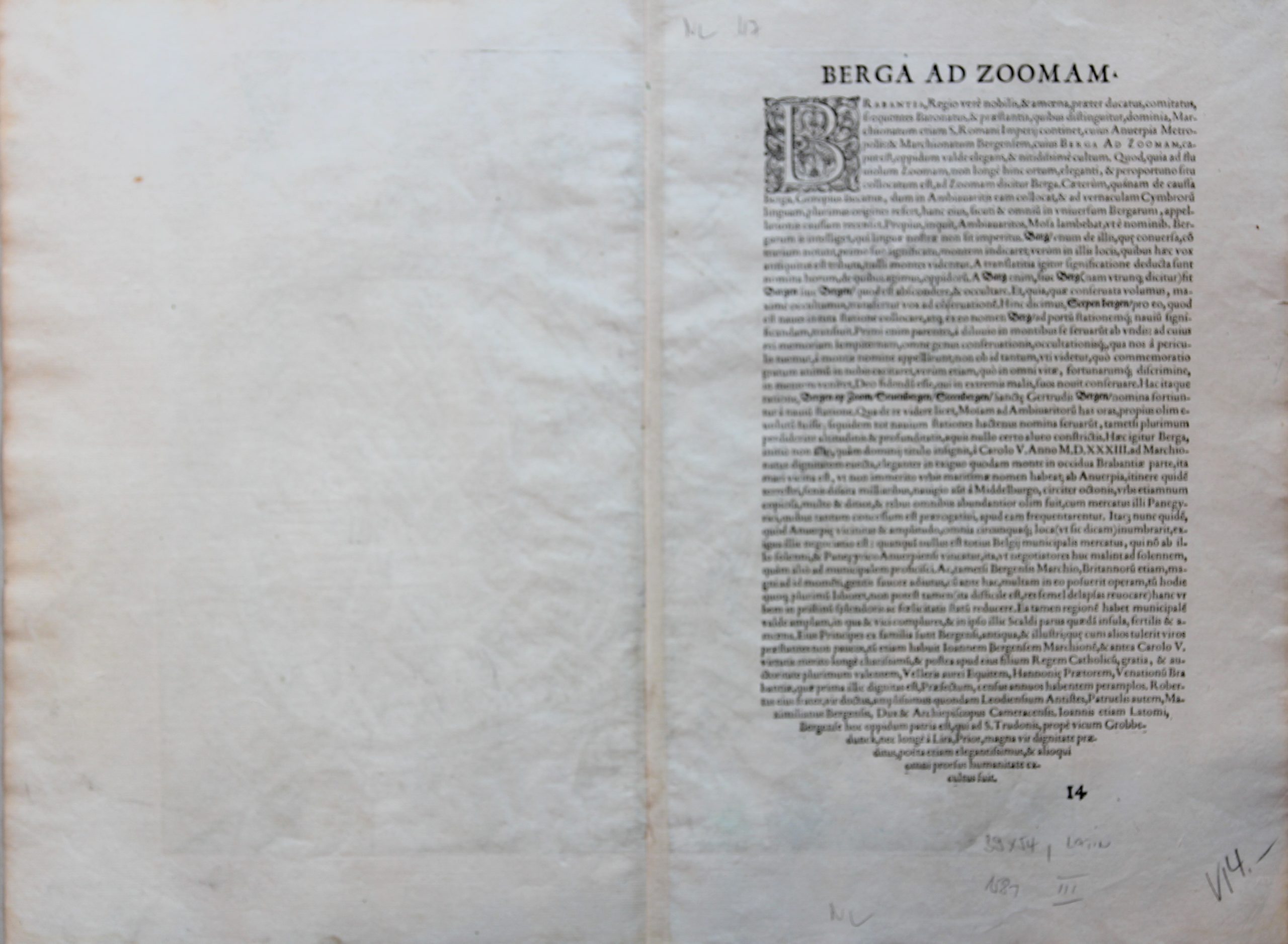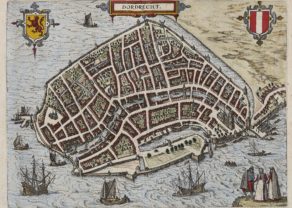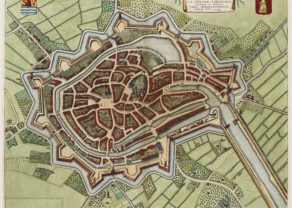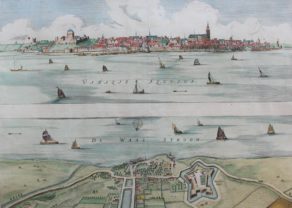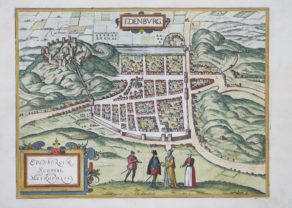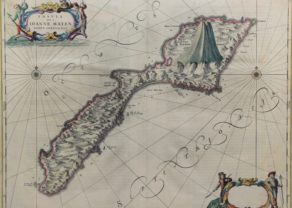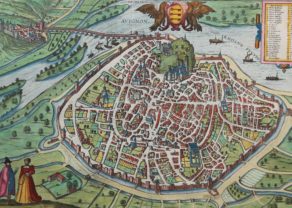Bergen op Zoom
Detail
Date of first edition: 1581
Date of this edition: ca. 1581
Dimensions (not including margins): 33 x 38 cm
Dimensions (including margins): 40,8 x 53 cm
Condition: excellent. Sharp copper engraving printed on paper. Nicely coloured. Wide margins.
Condition rating: A+
Verso: text in Latin
Map reference: Van der Krogt IV, 2-1, 441; Taschen, Braun and Hogenberg, p 222.
From: Civitates Urbis Terrarum (Urbium Praecipuarum Totius Mundi Liber Tertius). Van der Krogt IV, 2-1, 41:1-3, page 14.
Bergen op Zoom commented by Braun
“Bergen is a beautiful and very well-built town that lies on a small hill in the western part of Brabant, so close to the sea that it could also be called a coastal town. It still has a sizeable population but was much wealthier in earlier times, when the large annual fairs that brought it many benefits and freedoms were still held there.”
Original title: Berga ad Zoomam
Translation of cartouche text: Bergen op Zoom, Brabantine town, named after the little River Soma (Zoom), which supplies it with water. It was once prosperous on account of its fairs; today, however, due to its proximity to Antwerp, foreign merchants visit the city less.
The engraving has been made after a design by Jacob van Deventer.
Taschen on Bergen op Zoom
Bergen op Zoom, which arose in the Middle Ages out of the fusion of three small settlements on the Oosterschelde and was officially chartered in 1347, is seen here in a bird’s-eye view. The town plan features three market squares, namely the main market, the fish market and the corn market. Also prominent in the circular historical centre is the basilica of Sint-Lambert. With its harbour (left) and fairs, the former fishing village of Bergen op Zoom rivalled Antwerp, situated to the south, as an important centre of trade up to the beginning of the 16th century. Not until flooding in the hinterland and the Eighty Years’ War (1568-1648) did the town go into decline. In 1577, as part of the Dutch Revolt, Bergen op Zoom was taken by the Dutch and successfully defended multiple times against attempts to recapture it by Spanish troops. Today the city has 65,000 inhabitants.
Related items
-

Dordrecht
by Ludovico GuicciardiniPrice (without VAT, possibly to be added): €300,00 / $333,00 / £267,00 -

Middelburg – Middelburgum
by Joan BlaeuPrice (without VAT, possibly to be added): €900,00 / $999,00 / £801,00A jewel to visit
-

Nijmegen double view
by Joan BlaeuPrice (without VAT, possibly to be added): €1 000,00 / $1 110,00 / £890,00Beautiful double view
